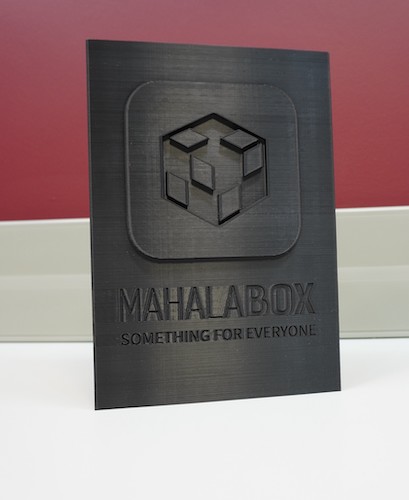Regent Business School’s MAHALABox is making sure that South Africa’s most vulnerable don’t get lost in the digital divide.
One of the biggest hurdles facing South Africa’s many job seekers is access to vital online resources, including recruitment sites. Stats SA reported in August that the official unemployment rate in the second quarter of 2021 was a record 34.4%, one of the many social ills plaguing the country’s most vulnerable.
Regent Business School has developed the MAHALABox to try to make a difference. When the box is connected to a cellphone, users can download videos, e-books and other crucial information without data or access to the internet.
‘It is our solution for bringing important skills and resources to students, the unemployed and the youth in local communities, who may not otherwise have access to the internet or such curated digital resources. It is our hope that by providing such a service, it may afford better opportunities to these people,’ said the operations director at Regent Business School.
While many South Africans have a smartphone, the cost of data can put internet access out of reach, and this digital divide reinforces the inequalities too many South Africans face each day. Almost 60 million smartphones are connected to mobile networks in South Africa everyday, which is why the MAHALABox requires just a smartphone to turn it into a one-stop shop for a wide range of information and job placements, along with access to agencies, employers and recruiters – all of which would be impossible without data.
The MAHALABox allows users to download books, videos, templates and other important content and services, including self-help, emotional intelligence exercises, career assessments, aptitude tests, CV templates and interview preparation – all for free.
As loadshedding returns, another big plus is that the MAHALABox can be powered with solar energy. ‘By making use of a solar panel and a rechargeable battery, the box can be powered with solar power. It uses low voltage, so requires minimal power input and uses this energy efficiently. It also uses a cheap, ready-made mini-computer that can be easily mounted or be portable – making the solution cost effective, feasible and scalable.
The MAHALABox may be a way to offer free internet access, but that does not make the content available cheap. New content can be updated and featured on a regular basis, which will then attract future users and retain them too, thus promoting sustainability and longevity of the system.
Mahala means free in Zulu, meaning no cost, but the MAHALABox also has the ability to free South Africans from the shackles of unemployment.
Regent Business School
https://regent.ac.za







